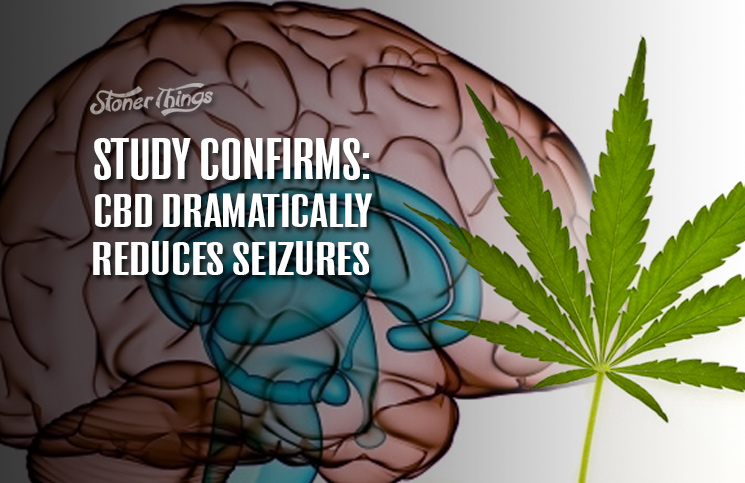A new study out of Chicago confirms earlier evidence that a marijuana-based drug is highly effective in reducing severe childhood seizures.
Along with the first study, the new tests make it much more likely Epidiolex, a pot-infused pharmaceutical, will be approved by the FDA for use in treating Dravet syndrome, a rare form of pediatric epilepsy. If it happens, it would mark the first time the federal government has cleared a drug containing cannabis for public use.
The results apply only to Epidiolex, which contains the non-intoxicating cannabinoid CBD, long believed to be an effective tool in fighting seizures. But the study was tightly controlled, meaning the FDA will likely give it greater weight than previous CBD claims.
Dravet syndrome is a life-threatening condition that causes frequent seizures and interferes with language development, motor skills, and childhood relationships. The Chicago Tribune profiled one participant in the study, a 5-year-old boy from Milwaukee named Caleb.
Caleb’s case is not as severe as many others with Dravet, but he suffered chronic convulsions and had trouble with running, jumping, balancing, and other critical motor skills.
CBD treatment eliminated child’s seizures
Caleb was given a 3 milligram dose of Epidiolex twice a day throughout the study. Almost immediately after he started treatment, he had no seizures for 100 days. And when they came back, they were half as long as his normal convulsions.
“His eyes sparkle more,” said his mother, Kelley Yunk. “He’s more engaged. I think he’s more cheerful. For our family, it was such a huge blessing.”
Epidiolex may make it possible for children to quit other, more dangerous drugs used to calm seizures, as it did with Caleb. Unlike those medications, it produces relatively mild side effects, including sleepiness, diarrhea, and limited appetite, according to the manufacturer.
Non-intoxicating CBD
Epidiolex is based almost entirely on concentrated CBD, which, together with THC, is one of the most critical cannabinoids in marijuana. THC gets users high; CBD does not, making it a more useful choice for suffering children.
The Chicago study was one of four conducted nationwide by GW Pharmaceuticals. The first trial was promising, GW said, but the new study used more stringent placebo controls. This approach allows scientists to rule out the placebo effect and other variables in determining whether the drug works.
GW studied Epidiolex on 120 pediatric patients between ages 2 and 18 who suffer from Dravet syndrome. Each of the children had previously been given anti-convulsive medications that failed to prevent their seizures.
Study showed Epidiolex to significantly reduce seizures
As in the first study, GW found Epidiolex reduced seizures by an average of 39 percent. The placebo resulted in a drop of just 19 percent, and the difference was enough to confirm the drug works.
The Chicago study was the second of four conducted across the United States. GW CEO Justin Grover said the results could lead to quick approval by the FDA, with the drug reaching the market by the end of next year.
It would only be available to treatment-resistant patients, those who have not responded to other, more conventional medications. Grover said it’s possible insurance companies will cover Epidiolex, but said GW doesn’t know yet what it will cost at pharmacies.
“We’re obviously delighted,” he said of the new results.













